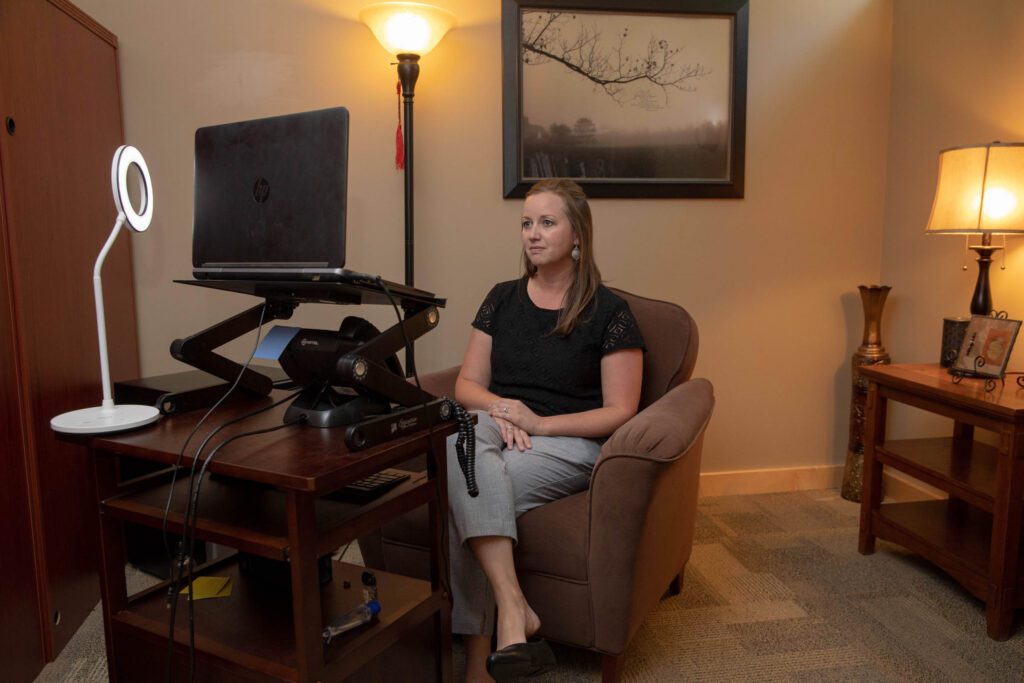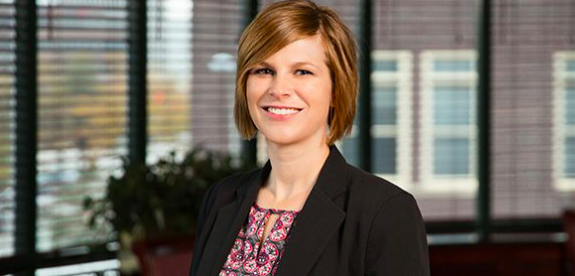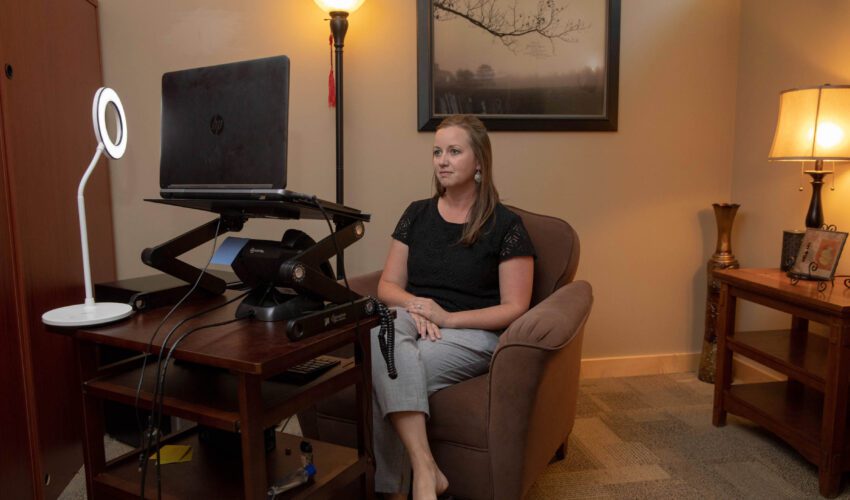Return to ‘normal’ brings its own set of stresses, but help is easier than ever
May 27, 2021
This paid piece is sponsored by Sioux Falls Seminary.
Each positive change can cause stress.
“Getting married is a top 10 most stressful thing to do, even though it’s supposed to be the happiest day of your life,” said Amy Marschall, a licensed psychologist at Sioux Falls Psychological Services.
“A job promotion is stress. Every change, every adjustment is stressful.”
So even though you might think emerging from the restrictions of the pandemic should be a positive, if you’re feeling extra stressed because of it, that’s natural, psychologists say.
“A move away from pandemic precautions is going to be stressful,” Marschall said. “And it went on so long. With big changes like a new job or college, the adjustment takes about a year. And this lasted long enough for our brains to learn this is what life is like. This is what’s normal. So even for people excited to shift back, it’s still a shift.”
May marks Mental Health Awareness month, and given this stage of the pandemic, it’s a timely opportunity to take stock of your mental health.
“We’ve spent the last year with a level of anxiety that was adaptive, and that’s going to be hard to let go of,” Marschall added.
Sioux Falls Psychological Services is a multidisciplinary group of mental health professionals that includes two dozen therapists, psychologists, social workers, counselors and staff with a broad range of specialties. They serve couples, families and individuals of all ages by providing an array of services covering:
- Life changes and transitions.
- Anxiety and depression.
- Trauma, abuse and betrayal.
- Anger and conflict.
- Grief and loss.
- Marital affairs.
- Self-image and self-worth.
- Loneliness and isolation.
- Impact of addiction.
- Issues related to substance abuse.
- Behavioral therapy.
- Relationship challenges.
- Chronic pain and illness.
- Separation, divorce or remarriage.
- Identity, gender or sexual concerns.
- Rape and sexual abuse.
- Spiritual issues.
- Medical conditions or issues.
- Career counseling.
- Post-traumatic stress disorder.
“Based on the number of calls we’ve been receiving at our office for this time of year, referrals remain consistent, and people continue to seek care who haven’t necessarily sought care for mental health before,” said Jennifer Helkenn, a licensed psychologist and co-director of Sioux Falls Psychological Services.
“I think transitioning back to ‘normal’ being out and about and loosening restrictions does exacerbate some concerns for individuals about exposure to COVID.”
And over the past year, people have settled into routines, she added.
“And some people have found comfort in that. Going back to a ‘normal’ state just creates a whole host of anxieties and stresses as they shift to changes in work routines and more social activities, events and activities for kids again. Those are the biggest themes I’m seeing.”
Burnout at work is a big one too.
“I see that consistently,” Helkenn said. “So many people were kind of hanging on, so to speak, during the pandemic and just getting by and getting through, and now people are tired. And this return and adjustment back to normal is being met with that sense of fatigue and new worries and anxieties. Even for people who welcome the transition, it can present challenges that may not be anticipated.”
Concerns among kids
Marschall’s practice primarily focuses on children and adolescents. She said many who believed their parents would always be able to keep them safe had that illusion shattered in the past year.
“A lot of kids who were not ready to realize that mom and dad don’t have the power to control the entire world realized that when the pandemic hit,” she said. “And there’s been a huge rise in anxiety and that realization that while parents are assuring they will do everything to keep you safe, they might not be able to.”
In counseling college students, she has seen a higher stress level than normal, especially among incoming freshmen.
“Transitioning to college is always stressful, and they all transitioned during a pandemic, so it’s extra stressful,” she said.
Colleagues who specialize in eating disorders among teens and preteens also have found disordered eating behavior is way up, she added.
“One component of that is that food is the one thing they can control,” she said. “I don’t know about you, but I felt out of control quite a bit over the last 14 months.”
Getting help
The positive is that access to mental health care is becoming easier, the therapists said. There is great willingness among insurers to cover virtual care, and the options for in-person and virtual visits are growing.
“We are in the process of transitioning back to more in-person care,” Helkenn said. “We know that some people will prefer to continue to do telehealth and appreciate the convenience and confidentiality it offers. And we know others are ready to return back to the office.”
Sioux Falls Psychological Services is preparing to meet the preferences of both patients and staff by allowing flexible scheduling and approaches.
“We went from doing maybe 5 percent of our services through telehealth to doing almost all our services that way, and we expect it will continue at a much higher rate than it did before the pandemic,” Helkenn said.
People who think they might benefit from talking to a therapist should reach out, she added.
“If you’re having difficulty sleeping or just not able to experience joy or pleasure in things, or are feeling distracted or unable to concentrate, feeling kind of sad or unmotivated, those would all be red flags that we encourage people to reach out and connect with somebody,” she said.
The key is to do it before things get worse, Marschall added.
“There’s never a wrong time to ask for an appointment, and there’s never a threshold of ‘am I doing badly enough to try and get some help?’ A lot of people wait until it’s ‘bad enough,’ and you can avoid it getting that bad if you go in sooner,” she said. “We need to reframe our thinking around mental health to think of it as preventative care rather than reactionary care.”
Many individuals self-refer to Sioux Falls Psychological Services, so calling 605-334-2696 or making contact through the website is all it takes to get connected.










